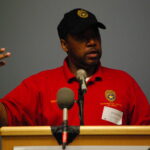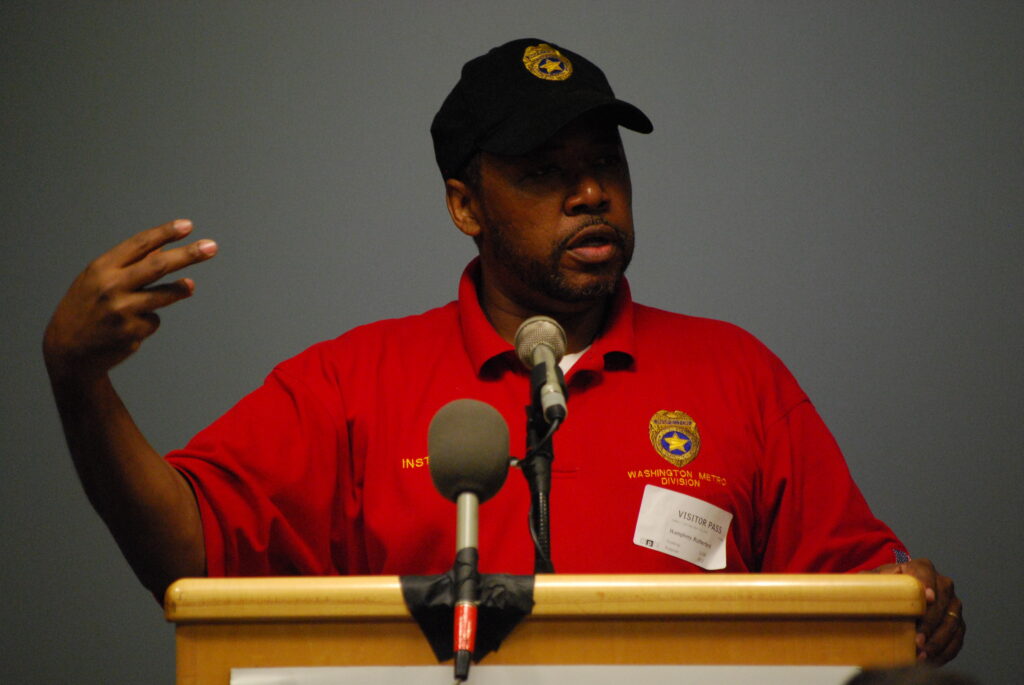
By Deena Lee
UJW Staff
WASHINGTON — To shoot or not to shoot?
That is the question that constantly lingers in the mind of Cpl. Humphrey Rutherford as a postal police officer.
He said he loves meeting people on his job, but he also has to be wary of them. He said you never know when he’ll be put in a situation in which he has to shoot to kill.
Rutherford, speaking recently to a group of student journalists, said he makes life and death decisions every day on the job.
Once when he was on patrol, he said, he noticed a truck driving erratically in a parking lot. The only way he could get the man to stop, he said, was to point his weapon at the vehicle.
When the man got out of the truck, Rutherford said he saw him take something out of his back pocket.
Rutherford was faced with the prospect of having to shoot the man. It turned out the reckless driver was only reaching for his wallet.
In making split-second decisions, Rutherford said, “You just have to know how to articulate your actions.”
Rutherford said he has been a postal police officer since 1996. He underwent training at a federal facility in Glynn County, Ga. The intense training included courses about the law, firearms and even physiology.
Rutherford said he treats his weapon with the utmost care. “Safety is paramount. I don’t care what you are doing,” he said.
He said the decision about whether or not to shoot is a balancing act between lawful action as a law enforcement officer and his conscience as a civilian.
“You just have to realize that’s part of your job,” he said.


